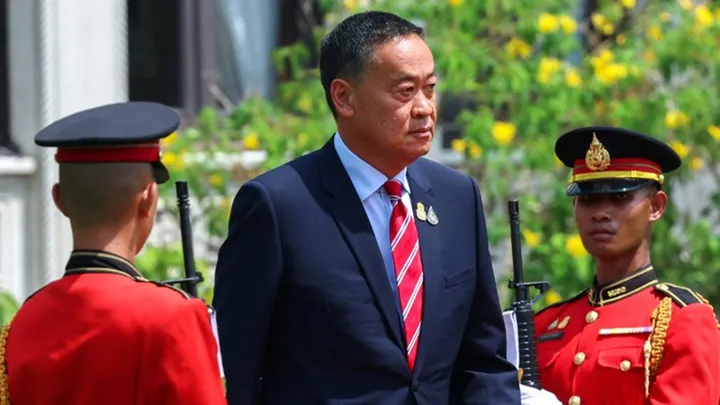Thailand’s political landscape is poised for a dramatic shift following the Constitutional Court’s dismissal of Prime Minister Srettha Thavisin. The court’s ruling, which found Srettha violated ethical standards, has thrown the country’s governance into turmoil. With a new premier expected to be selected soon, the nation faces yet another chapter in its long history of political instability.
Court Ruling: A Stunning Decision
On Wednesday, Thailand’s Constitutional Court ruled 5-4 to dismiss Prime Minister Srettha Thavisin, citing a “gross” breach of ethics. The court found that Srettha had appointed a minister with a questionable past, leading to his removal. The judges remarked, “The accused is terminated as prime minister due to his lack of honesty,” emphasizing that his actions “grossly breached ethical standards.” This verdict highlights the court’s central role in Thailand’s political upheavals, with Srettha becoming the fourth premier in 16 years to be ousted by the judiciary.
The Fallout: Economic and Political Implications
Srettha’s exit comes at a critical time for Thailand’s economy. The country has struggled with weak economic indicators, including sluggish exports and high household debt. Nuttachart Mekmasin, an analyst at Trinity Securities, noted the ruling’s potential impact, stating, “It’s a negative surprise. It is a direct risk to the economy.” He highlighted concerns that key policies, such as Srettha’s 500 billion baht ($14.3 billion) cash handout plan, may be delayed, affecting consumer and business confidence.
The Search for a New Leader
With Srettha’s departure, the Pheu Thai Party, the largest in the coalition, is quickly moving to select a new prime minister. The party will meet on Thursday to choose a candidate ahead of a special parliamentary session on Friday. Potential candidates include former Justice Minister Chaikasem Nitisiri, Pheu Thai’s leader Paetongtarn Shinawatra, and other notable figures like acting Energy Minister Pirapan Salirathavibhaga. Anutin Charnvirakul, leader of the Bhumjaithai Party, emphasized the importance of Pheu Thai in forming the next government, stating, “Pheu Thai is still leading the government… We have to listen to Pheu Thai.”
International Reactions and Future Prospects
The international community is closely watching the developments in Thailand. The United States has expressed its commitment to its alliance with Thailand, with a State Department spokesperson stating, “The United States looks forward to the selection of a new prime minister as soon as possible and a smooth transition of power.” As Thailand braces for the new political landscape, the future remains uncertain, with potential shifts in policy and governance on the horizon.







